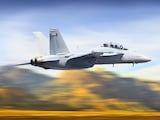- Noor Wali Mehsud leads Tehreek-e-Taliban Pakistan (TTP) since 2018 after predecessors' deaths
- Pakistan blames Mehsud for near-daily attacks and seeks his removal from Afghanistan
- An airstrike in Kabul targeted Mehsud's convoy, but he likely survived, officials say
Hanging over the recent eruption of fighting between Pakistan and Afghanistan, the most serious clash between the neighbours in decades, is the spectre of a militant leader Islamabad accuses of directing near-daily attacks on its soil.
An uneasy ceasefire took hold on Wednesday, but Pakistan's main grievance endures: the presence of Noor Wali Mehsud in Afghanistan, along with his top lieutenants.
Last week, an airstrike in Kabul hit an armoured Toyota Land Cruiser believed to be carrying him, according to Pakistani security officials. Militants and Pakistani officials say he likely survived, and the group released an audio message purportedly from him.
People injured during airstrikes amid the conflict between Afghanistan and Pakistan, lie on hospital beds following a temporary ceasefire, in Kabul, Afghanistan October 16, 2025.
Photo Credit: Reuters
Pakistan has not officially owned the airstrike, the first in Kabul since the successful 2022 US targeting of Al Qaeda leader, Ayman al-Zawahiri.
The Afghan Taliban denies harbouring Pakistani militants and, in turn, accuses Islamabad of sheltering the local branch of the Islamic State group, their main armed rival.
Revival Under His Leadership
Mehsud took over the leadership of Tehreek-e-Taliban Pakistan (TTP) in 2018 after his three predecessors were killed by US drone strikes. By then, Pakistani army operations had largely driven the group out of their former strongholds and into Afghanistan.
He has revived the group, transformed its strategy and united warring factions with diplomatic skill, analysts say. Trained as a religious scholar, he also took up an ideological battle.
The Taliban's 2021 takeover next door gave the TTP freer movement and greater access to weapons, Islamabad says, and attacks inside Pakistan escalated - especially in the northwest bordering Afghanistan.
Residents ride a loaded truck of belongings, as they flee the area, following exchanges of fire between Pakistan and Afghanistan forces, at the border crossing in Chaman, Balochistan province, Pakistan, October 15, 2025.
Photo Credit: Reuters
In the past, the TTP struck civilian targets, like mosques and markets, including killing more than 130 children in a 2014 school assault. Mehsud, concerned these attacks caused public revulsion in Pakistan, directed the group to target only military and police.
In a rare video speech released earlier this year, he portrayed Pakistan's army as anti-Islam, criticised its role in politics, and said the generals had "hijacked the people of Pakistan for the last 78 years".
Pakistan's military says that the TTP has perverted Islam and that it is supported by the country's adversary India, a charge that New Delhi denies.
Tribal Insurrection
Mehsud fuses religious justification with nationalism. He is the author of at least three books, including a 700-page treatise that traces the origins of the group's insurrection to the struggle against British colonial rule.
Abdul Sayed, an independent expert on the region's militancy, said Mehsud claims to speak for the Pashtun ethnic group that lives in northwest Pakistan and also in Afghanistan - the Afghan Taliban is largely Pashtun.
"Mehsud continues his efforts to reshape the group into an armed movement fighting, as he claims, for the rights of Pashtun tribespeople," said Sayed. "In pursuit of a government system similar to that of the Afghan Taliban."
Yet the TTP has negligible public support in the northwest or elsewhere in the country, analysts say.
In unofficial talks with the Pakistani authorities in recent days, held through tribal intermediaries, the militants demanded the imposition of their brand of Islamic law in the part of Pakistan bordering Afghanistan, the exit of the army from that region, and their return there. The authorities refused.
(This story has not been edited by NDTV staff and is auto-generated from a syndicated feed.)















